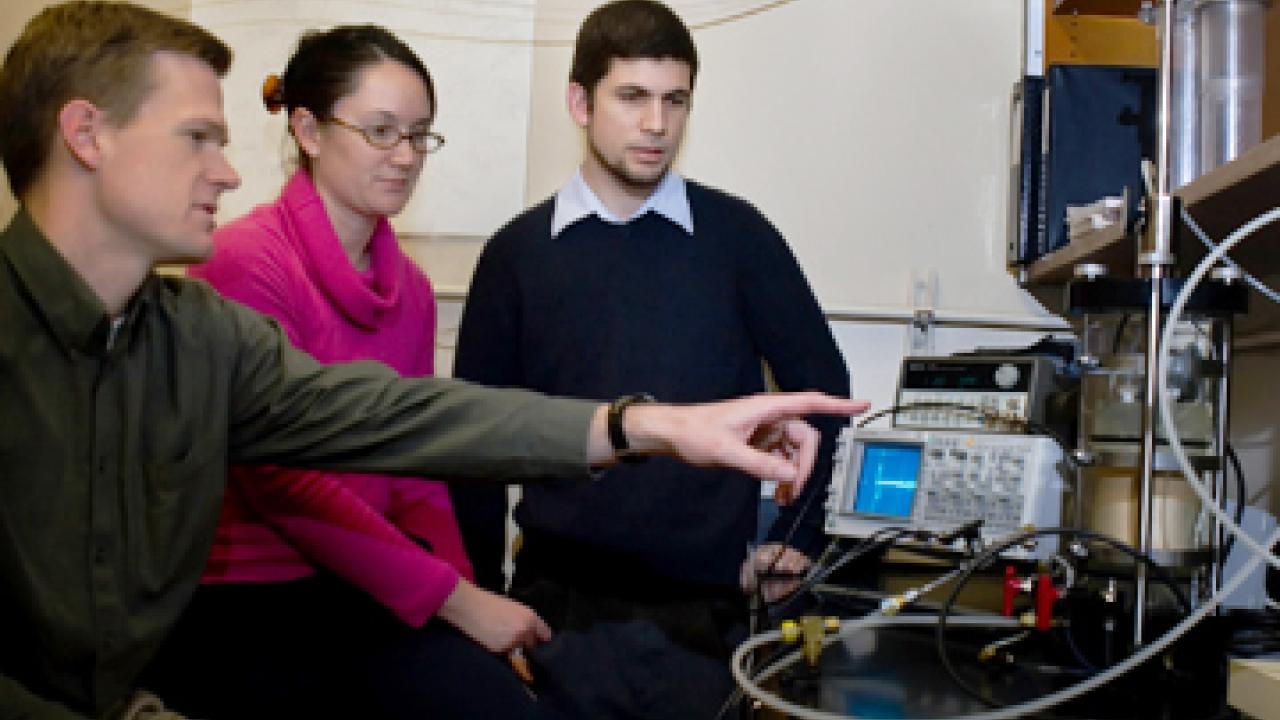Soil bacteria could be used to help steady buildings against earthquakes, according to researchers at UC Davis. The microbes can literally convert loose, sandy soil into rock.
When a major earthquake strikes, deep, sandy soil can turn to liquid, with disastrous consequences for buildings sitting on such soil. Today, engineers can inject chemicals into the ground to bind loose grains of soil together. But these epoxy chemicals may have toxic effects on soil and water, said Jason DeJong, an assistant professor of civil and environmental engineering at UC Davis.
The new process, so far tested only at a laboratory scale, takes advantage of a natural soil bacterium, Bacillus pasteurii. The microbe causes calcite (calcium carbonate) to be deposited around sand grains, cementing them together. By injecting bacterial cultures, additional nutrients and oxygen, DeJong and his colleagues found that they could turn loose, liquefiable sand into a solid cylinder.
"Starting from a sand pile, you turn it back into sandstone," DeJong said. Similar techniques have been used on a smaller scale, for example, to repair cracks in statues, but not to reinforce soil.
The new method presents no toxicity problems, compared with chemical methods, DeJong said. Also, the treatment could be done after construction or on an existing building, and the structure of the soil is not changed -- some of the voids between grains are just filled in.
A paper describing the work has been published in the Journal of Geotechnical and Geoenvironmental Engineering.
Media Resources
Dave Jones, Dateline, 530-752-6556, dljones@ucdavis.edu
